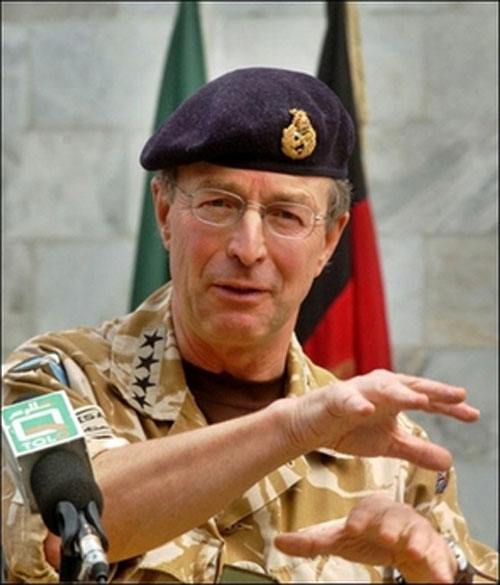Former Afghanistan commander to be new head of British army
 London - A British general who is believed to be backing a major troop "surge" in Afghanistan was Friday named the new head of the British army.
London - A British general who is believed to be backing a major troop "surge" in Afghanistan was Friday named the new head of the British army.
General David Richards, a former commander of NATO forces in Afghanistan, was reported by the Independent newspaper Friday as advocating a troop "surge" of 30,000 to defeat the Taliban in Afghanistan.
Richards, 56, was in charge between 2006 and 2007 of the 35,000 troops making up the 37-nation International Security Force (ISAF) in Afghanistan, and commanded British troops in Sierra Leone in 2000.
He said in a BBC interview recently that there was a "case for more troops" to be sent to Afghanistan, although they did "not necessarily" have to come from Britain.
Some 8,000 British troops are currently based in Afghanistan's southern Helmand province, and their number could be increased by a further 5,000, military strategists say.
According to the Independent, Richards believes that the other 25,000 troops required could be made up of US reinforcements and newly-trained Afghan soldiers.
He is also known to back a negotiated settlement of the conflict in Afghanistan, which he believes must take place with the Afghan government and NATO from a "position of strength."
Richards has been commander-in-chief of British land forces since February, which means he oversees training and equipment for operations in Iraq and Afghanistan.
He will replace General Richard Dannatt, who is widely seen as having forfeited his chances of promotion with an outspoken attack on Britain's role in Iraq in October 2006.
Dannatt said at the time that the presence of British troops in southern Iraq was only "exacerbating the security problems" in Iraq.
However, Richards himself is no stranger to controversy. Reports have said that he was planning to take early retirement after being passed over for the top job of chief-of-the-defence following his public criticism of the "serious strains" under which British forces were operating in Afghanistan.
The government also announced that Admiral Mark Stanhope will be the new head of the Navy, and Air Marshal Stephen Dalton will become the head of the Royal Air Force. All changes will come into effect at the end of July next year. (dpa)